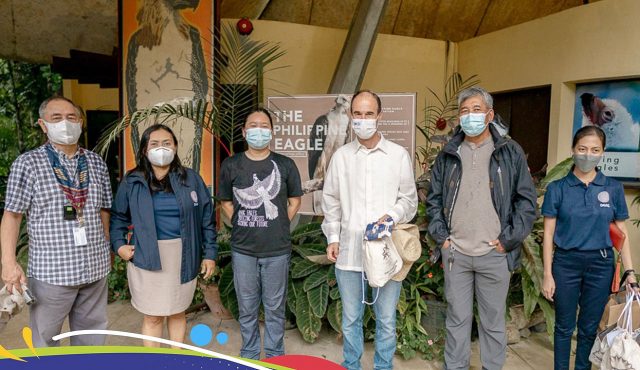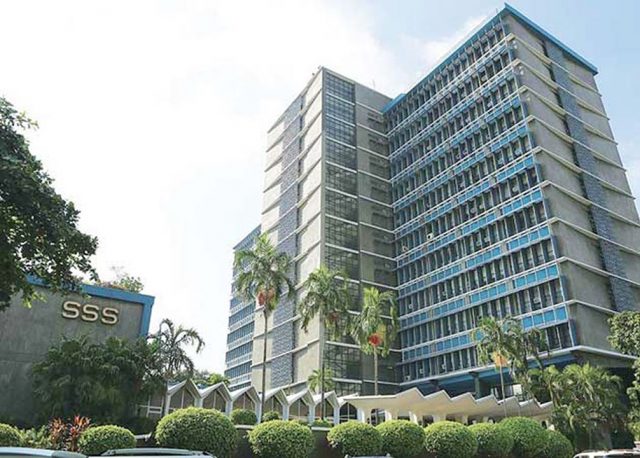Banks expect to keep lending to coal-fired power projects
Banks expect to continue lending to coal-fired power projects as the Philippines shifts to cleaner and renewable energy sources by 2040, pending developments in an Asian Development Bank (ADB) program funding the energy transition, a senior banker said.
“There’s a current initiative from the (ADB) for the energy transition. That’s something that the banks haven’t really appreciated yet, but we will talk to the ADB,” BDO Capital & Investment Corp. President Eduardo V. Francisco said during the Energy investment Forum Friday.
“We want any way for the transition of coal to happen smoothly also, so there will be no stranded assets for the original coal investors,” Mr. Francisco said.
He also said that if the Department of Energy (DoE) allows nuclear energy, BDO Capital & Investment is willing to explore financing whatever companies decide to venture into nuclear.
During the United Nations Climate Change Conference (COP26) in November, Finance Secretary Carlos G. Dominguez III, head of the Philippine delegation, said the country has partnered with the ADB to establish the Energy Transition Mechanism (ETM) in the Philippines.
ETM is ADB’s initiative to “shorten the life of coal-fired power plants and unlock new investments in sustainable and renewable energy.”
Through partnerships, public and private investment will support and finance country-specific ETM funds to retire coal-fired power plants earlier than scheduled.
“In parallel, proceeds from the assets or other investments will be mobilized onward renewable energy plants and enabling infrastructure such as grids and storage to provide clean energy,” the ADB said on its website.
In Oct. 2020, the DoE announced a moratorium on new coal-fired power plant projects.
Prior to the suspension, there were 3,436 megawatts (MW) worth of approved coal-fired power plants in Luzon including projects from Meralco Powergen Corp. and GNPower Dinginin Ltd. Co.
The equivalent capacities are 135 MW and 420 MW for the Visayas and Mindanao, respectively.
To hit its target of 50% renewable energy (RE) capacity outlined in the Philippine Energy Plan by 2040, Energy Undersecretary Felix William B. Fuentebella said in his presentation during the forum on Friday that the Philippines needs an additional 92,320 MW of installed capacity by 2040 under what it calls the Clean Energy Scenario (CES). — Marielle C. Lucenio
CoA tallies over 900,000 employers not compliant with SSS remittance rules
GOVERNMENT AUDITORS said that 926,899 employers were not compliant with the rules for remitting their employees’ premium contributions to the Social Security System (SSS), depriving the agency of funds to deliver its services.
In its 2020 annual report, the Commission on Audit (CoA) found that P321.53 billion has yet to be paid by these employers to the SSS, including penalties and damages.
“Inability to collect promptly the unremitted premium contributions, corresponding penalties and damages from delinquent employers may result in losses of SSS funds which could have been invested to earn income for the benefits of the members and beneficiaries,” CoA said.
The failure to remit comes in spite of an SSS Accounts Management System which seeks to monitor collection of contributions and the Condonation Penalty Contribution Program (CPCP) put in place in 2019.
Only 55,750 of the 112,043 employers assessed as delinquent availed of the CPCP duringits six-month run.
Delinquent accounts under the jurisdiction of the agency’s Branch Operations Sector (BOS) and Large Accounts Division totaled 916,626 employers, which is 97.86% higher than the 2019 tally.
Unpaid contributions by these employers increased by 69.89% from 2019 to P316.35 billion.
The BOS also reported to auditors that out of 947,234 employers registered with it, 916,229 or 96.73% have outstanding payments of P315.23 billion, including principal and penalties.
“A significant portion of 671,841 or 73.33 percent of the total delinquent ERs (employers) with a total delinquency amount of P300.692 billion have (unsettled arrears) for more than five years,” CoA reported.
The BOS also reported that of the non-compliant employers, 36,248 were sent billing letters while 1,427 were referred to the Legal and Enforcement Group (LEG).
Auditors proposed a review of the Account Management System and implement stricter guidelines, fast track approval of procedures on the handling of non-compliant accounts, and consider another condonation program for those that failed to avail of the previous program and offer it for longer.
SSS management replied that the Manual of Procedures (MOP) order on the handling of delinquent employers is undergoing evaluation by the Management Support Services Division, with approval and implementation targeted before the end of the year. — Russell Louis C. Ku
GSIS deemed stable despite AFP pension risk
The Government Service Insurance System (GSIS) remains stable despite risks posed by military pension liabilities, Finance Secretary Carlos G. Dominguez, III said.
“The GSIS is not in any danger of not floating,” Mr. Dominguez said in a Viber message to reporters.
“As chief financial officer of the government, it is my duty to clearly define the financial issues facing the country, and one sure way of doing that is to make certain that all our liabilities including contingent ones, are recognized and understood by all so they can be rationally addressed by this and future administrations,” he added.
The inability to reform the military and uniformed personnel pension scheme has been flagged as a key fiscal risk for 2022 and the next administration, according to a report released by the Development Budget Coordination Committee (DBCC) Friday.
It cited pending measures including Senate Bill 1419, which seeks to further boost current retirement benefits and pensions for military and uniformed personnel.
“Said contribution rates vary across bills but generally range from 18% to 27% of the monthly base pay of the military and uniformed personnel, which is exorbitantly high when compared to the civilian rate of 12% of the monthly basic salary,” the DBCC said.
“This will result in the ballooning of retirement and pension requirements over the next few years, without the correlative funding sources to support them,” the report added.
A previous study by the GSIS showed that the government needs to allot P9.6 trillion to keep the pension system afloat without reforms.
An actuarial study by the Department of Finance concluded that the creation of a retirement fund solely for military and uniformed personnel will require an additional P45 billion annually.
Instead of following through on a recommendation for a separate authority that will oversee such retirement funds, the DBCC backed the GSIS as fund administrator, “given its actuarial, investment, and fund management expertise and experience,” the DBCC said.
“It is also prudent to have it be managed by the GSIS so that administration of the retirement and pension systems are holistic and overseen by one central agency,” it added. — Luz Wendy T. Noble
Japan invited to invest in EVs, other sustainable sectors
THE Department of Trade and Industry (DTI) said it is inviting Japanese companies to invest in the Philippine electric vehicle (EV) industry and sustainable industries.
Trade Secretary Ramon M. Lopez said the Philippines is positioning itself as a regional manufacturing hub for EVs and EV parts in the Association of Southeast Asian Nations (ASEAN).
“We recognize that the future of transportation will be autonomous, connected, electric, and shared,” Mr. Lopez said during the recent virtual Philippine Economic Briefing organized by the Philippine Embassy in Tokyo, the ASEAN Japan Centre, and the DTI.
“The country’s EV ecosystem is composed of 54 manufacturers and importers, including Japanese parts manufacturers and dealers like Mitsubishi, Toyota Tsusho, Hitachi Metals, and Yazaki,” he added.
Mr. Lopez said Japanesecompanies should help develop green metals such as nickel, copper, and cobalt.
“Around 9 million hectares or 30% of the country’s total land area has mineral potential, and there is opportunity to develop and responsibly utilize untapped vast mineral resources that could be used for downstream industries, such as EV battery manufacturing and support wiring harness production,” Mr. Lopez said.
“The Philippines is one of the world’s richly endowed countries in terms of mineral resources,” he added.
Mr. Lopez said prospective and current Japanese investors can also venture into other businesses such as electronics and semiconductors, medical devices, automotive, aerospace, agribusiness, and construction.
According to the DTI, Japan was the Philippines’ second-largest trading partner, third-largest export market, and second-largest source of imports in the nine months to September.
“Total trade between the two countries has significantly improved by 20% amounting to $16.14 billion or 1.84 trillion yen as compared to the same period in 2020,” the DTI said.
It added that Japan is among the Philippines’ top five sources of investment pledges.
“For the first semester of 2021, Japan ranked as the second-largest source of investment promotion agencies (IPA)-approved investments with commitments amounting to $235.8 million or 27.15 billion yen, a significant 563% increase from approved investments during the same period in 2020,” the DTI said. — Revin Mikhael D. Ochave
GOCC subsidies decline 17.5% in Oct.
GOVERNMENT corporations took in less budgetary support in October compared to a year earlier, with the biggest allocations granted to the National Irrigation Administration (NIA), the National Housing Authority (NHA), and the Philippine Fisheries Development Authority (PFDA), according to the Bureau of the Treasury (BTr).
Preliminary data from the BTr indicate that subsidies to government-owned and controlled corporations (GOCCs) dropped 17.5% year-on-year to P5.206 billion.
They also fell 43% from the September total of 9.16 billion.
The NIA remained the biggest recipient of subsidies, taking in P2.402 billion, up 9.3% from a month earlier but down 43% year-on-year. The agency’s subsidy accounted for nearly half or 46.13% of the total during the month.
The National Housing Authority received P1.098 billion, much higher than the P252 million received in Oct. 2020 but lower than the P3.059 billion in September.
The Philippine Fisheries Development Authority received P319 million in October, up sharply from the P32 million in September. The agency received no budgetary support in Oct. 2020.
The National Home Mortgage Finance Corp. (P172 million), Civil Aviation Authority of the Philippines (P100 million), National Kidney Transplant Institute (P107 million), Philippine Heart Center (P147 million), and the Philippine Postal Corp. (P135 million) all received subsidies exceeding P100 million.
Government corporations receiving more than P50 million were the Light Rail Transport Authority (P85 million); Philippine National Railways (P82 million); Development Academy of the Philippines (P68 million), IBC-13 (P84 million), and the Philippine Children’s Medical Center (P87 million).
Agencies that received no subsidies in October were the Local Water Utilities Administration, National Electrification Administration, National Food Authority, National Power Corp., Cagayan Economic Zone Authority, Philippine Crop Insurance Corp., Philippine Health Insurance Corp. (PhilHealth), Small Business Corp., and the Tourism Infrastructure and Enterprise Zone Authority.
Government subsidies in the first 10 months of 2021 amounted to P151.081 billion, down 8.5% from a year earlier.
PhilHealth received the biggest subsidy during the 10 months of P76.063 billion.
Subsidies are granted to GOCCs to cover operational expenses not supported by their revenue. — Luz Wendy T. Noble
Why insurers must adapt to meet the changing Philippine landscape under COVID-19
First of two parts
While the coronavirus disease 2019 (COVID-19) pandemic has financially impacted some parts of business and society in the Philippines more than others, consumers were also affected on psychological, emotional and economic levels. As a result, consumer insurance behaviors and preferences are evolving. This presents insurers with a unique opportunity to adapt their products and distribution models, provide value and support consumers against uncertainty and risks during this unprecedented time.
The EY 2021 Global Insurance Consumer Survey reveals relevant insights about the impact and anticipated changes to consumer insurance preferences and buying behavior brought about by COVID-19, as well as how insurers could adapt. EY surveyed consumers in various countries in Africa (South Africa), Asia-Pacific (Philippines, Japan), and North America (Canada, US) between May and August 2021. The objective was to gather insights about how the COVID-19 pandemic impacted the lives of consumers and their evolving insurance needs.
In connection to an increased desire for greater financial security, the survey shows that the pandemic brought about a significant interest in obtaining life insurance. The insurance industry can seize this chance to help consumers manage this challenging environment and support their financial well-being. The insurer’s role entails aligning solutions to cater to changing needs, helping consumers by providing a “safety net” protecting against future financial risk and uncertainty, and enabling digital channels to meet consumer demands. Insurers must devise ways to help customers understand better their products and the value they provide to remain relevant moving forward.
CONSUMER BEHAVIOR, PREFERENCES BY FINANCIAL IMPACT
Consumers across all countries express notably high concern about the effects of the pandemic. However, a sizable difference in scale of the financial impact from the pandemic is reported between the most impacted segment and the least impacted segment. Each segment reveals unique needs that necessitate insurers to adjust their products, solutions, and distribution channels to be flexible and easy to understand.
Comparing the results of the financial impact survey conducted in emerging countries like the Philippines and South Africa against the developed countries like Japan, the US, and Canada, we can infer that consumers in emerging markets experienced more severe financial consequences. These include job loss, reduction in work schedules and the need to dip into savings. Nearly half of the emerging markets respondents — 46% at most — experienced these consequences to a great degree compared to 26% or less who felt the same in the developed markets.
In the Philippines, the most financially impacted segment is typically younger (under 44 years old), with annual household incomes lower than P249,000 and with less than P1,200,000 in investible assets. They are more likely to serve in occupations where it is less feasible to work remotely.
PHILIPPINE CONSUMER CONCERNS
In determining what both segments considered important to them during the pandemic, a key insight from the survey revealed that 88% of the most impacted segment in the Philippines were mostly concerned about losing income from their jobs, while 87% were most concerned about losing a loved one earlier than expected.
These concerns, together with the need to dip into savings to support themselves and reduced employment hours, grew significantly over the course of the pandemic. This paved the way for consumers to become increasingly aware of their financial well-being, especially regarding the importance of insurance products. This is especially true among the most impacted segment, shown by a rise of 67% and 66% for health and life products, respectively.
Given the financial difficulties they have experienced, those in the most impacted segment are focused on reducing their exposure to similar financial risks in the future. As much as 77% of the most impacted claimed their intent to save more is a result of the pandemic. Emergency plans are also considered top of mind, with over 54% planning to develop their own.
PHILIPPINE CONSUMER PRODUCT PREFERENCES
Those in the most impacted segment are also more interested in insuring themselves against evolving future risk and express greater interest in purchasing insurance online. Products that appeal the most to this group focus on pandemic-specific solutions that covers hospitalization expense protection or an add-on feature for life insurance that allows access to funds in case of an emergency. Income disruption protection is also mentioned, such as a three-month salary cover, a product that can pay credit card bills and the continuity to fund a college education savings plan in case of job loss caused by the pandemic.
These are unmet needs brought about by the pandemic situation that provides insurers room for innovation. They include products that can adjust their prices in exchange for sharing personal data, and a request for usage-based motor policies based on a subscription fee with a premium based on the number of miles driven. The appetite to purchase this kind of protection is especially relevant to the current situation, making it urgent for insurers to launch targeted and value adding customer-centric solutions.
In the second part of this article, we discuss the increased shift to digital channels, and the increased prioritization of insurers with corporate social responsibility commitments.
This article is for general information only and is not a substitute for professional advice where the facts and circumstances warrant. The views reflected in this article are the views of the author and do not necessarily reflect the views of SGV, the global EY organization or its member firms.
Faith Mariel N. Reoyan is a Senior Manager from the Consulting Service line of SGV & Co.
Senate expects quick bicameral budget approval
By Alyssa Nicole O. Tan
SENATORS expect a swift approval of the reconciled version of the 2022 budget bill, according to its finance committee chairman, ruling out a reenacted measure that could threaten the government’s coronavirus pandemic response.
Lawmakers are likely to ratify the P5.024-trillion budget next week before they go on a holiday break, Senator Juan Edgardo M. Angara, who heads the Senate body, said in a Viber message on Sunday.
“I’m hoping both the Senate and House panels will be very focused on the health and pandemic response, mainly because everything else will depend on how well the government manages that,” he said.
Congress is under pressure to pass the bill by yearend to avoid a reenacted budget, which could delay government projects and expansion plans for some key programs amid the pandemic.
The measure should prepare the country for “all sorts of occurrences” amid uncertainty from the global health crisis, Mr. Angara said.
Party-list Rep. Eric G. Yap earlier said in a statement the goal of the bicameral conference committee that will start on Monday is to submit a budget “that will sustain our COVID-19 response efforts while supporting our gradual transition to full recovery.”
Senator Maria Lourdes Nancy S. Binay-Angeles, a member of the committee, said she expects a quick approval, noting that congressmen had few objections last year to the Senate version of the budget bill.
“If there are unsettled issues, I’m confident that it will be resolved quickly since both Houses are aware that the 2022 budget is important for recovery and response,” she said in a Viber message in mixed English and Filipino. “We need this to survive and get through the pandemic.”
Senator Maria Imelda Josefa “Imee” R. Marcos noted that despite hopes for a quick appropriation approval, next year’s budget is “an especially difficult one, with so many competing urgent needs to both COVID-proof and jumpstart the economy.”
The country would lose out in case of a delayed ratification by both houses of Congress, Senator Richard J. Gordon, Sr. said by telephone.
“We will have a harder time if the budget is not approved fast,” he said. “I have to be optimistic and trust in the good conscience of the House members.”
One of the key disagreeing provisions is the increase in the Health department’s budget to P230 billion under the Senate version from P182 billion.
Senators also cut the budget of an anti-communist task force to P4 billion from the P28 billion allotted by congressmen.
They also raised the budget of the Department of Education by P6.7 billion, of state universities and colleges by P26.56 billion and of the Technical Education and Skills Development Authority by P1.46 billion.
“The Senate will do its best to defend its version of the budget,” Senator Ana Theresia “Risa” N. Hontiveros-Baraquel said in a Viber message. “But will be open to possible compromises with our House counterpart to craft a truly pandemic- and recession-responsive 2022 budget while ensuring that we enact it on time.”
The House of Representatives passed its version of the bill on third and final reading in October. The Senate approved it this month. President Rodrigo R. Duterte will enact it once a reconciled version is sent to the palace.
Congressmen received copies of the Senate committee report at the weekend. “We got an electronic copy of the committee report on the General Appropriations Bill and we’re still reviewing it,” Party-list Rep. Ferdinand R. Gaite said in a text message.
Party-list Rep. Sarah Jane I. Elago said funds should be realigned with the return of face-to-face classes.
“We call on the bicameral committee to increase funding for health personnel, water, sanitation, and hygiene facilities, and COVID-19 mitigation strategies in schools,” she said in a statement. — with Russell Louis C. Ku
DoH logs 603 more coronavirus cases, 156 more deaths
THE PHILIPPINES reported 603 coronavirus infections on Sunday, bringing the total to 2.83 million.
The death toll hit 49,386 after 156 more patients died, while recoveries increased by 1,047 to 2.77 million, it the Department of Health (DoH) said in a bulletin.
There were 13,853 active cases, 1,270 of which did not show symptoms, 5,532 were mild, 3,903 were moderate, 2,410 were severe and 738 were critical.
The agency said 33% of the new deaths occured in November.
The Health department said six duplicates had been removed from the tally, six of which were reclassified as recoveries, while 115 recoveries were relisted as deaths.
It added that 116 patients had tested negative and were removed from the tally.
Two laboratories did not operate on Dec. 3, while four failed to submit data.
DoH said 26% of intensive care units in the Philippines were occupied, while the rate for Metro Manila was 28%.
Meanwhile, the government should buy treatment drugs targeting coronavirus variants including the newly detected Omicron from South Africa, molecular biologist Nicanor Austriaco told ABS-CBN Teleradyo.
Drugs made by Merck & Co., Inc. and Pfizer, Inc. “will attack all the variants equally well,” he said. “The Philippines has to try to buy these drugs.”
Mr. Austriaco, who is also part of the OCTA Research Group, said Pfizer’s paxlovid pill could significantly cut the risk of hospitalization or death and change the way the government manages the pandemic.
The local Food and Drug Administration (FDA) has issued a compassionate use permit allow the use of Merck’s investigational drug molnupiravir in several hospitals. The country received its first shipment of molnupiravir, which is sold under the brand name Lagevrio, in November.
“If you get the virus, even if it’s Omicron or something else, we’ll just give you the drugs,” the molecular biologist said. “You can take it at home — once in the morning, once at night.”
Last week, a panel of experts from the US FDA endorsed molnupiravir to treat COVID-19 after the pill proved effective against the respiratory illness.
Pfizer’s recent study on paxlovid also showed the drug could cut the chances of hospitalization or death for adults at risk from developing a severe coronavirus.
The anti-COVID pill may be prescribed by a doctor to senior citizens and seriously ill people, he said, adding that the drugs is taken twice a day for five days.
Mr. Austriaco said the drug is not recommended for young and healthy people, especially those who have been vaccinated against the coronavirus because their bodies can fight the virus.
“We anticipate that both of these drugs will be used in our hospitals probably in the next few weeks,” he said “Hopefully, it will be available around the world, including in the Philippines.”
Pfizer last month announced a deal to make paxlovid available more cheaply in the world’s least wealthy countries.
The drugmaker will sub-license production of the drug to generic drug makers for supply in 95 low- and middle-income nations covering about 53% of the world’s population, it said.
Under the deal with the global Medicines Patent Pool, Pfizer, which also produces one of the most widely used coronavirus vaccines with German lab BioNTech, will not receive royalties from the generic manufacturers, making the treatment cheaper. — KATA
Gatchalian seeks to institutionalize OTOP program to boost MSME growth, local economies
A SENATOR is seeking to institutionalize a promotional program for Philippine products that are mainly developed and made by small businesses using materials from their hometown.
Senator Sherwin T. Gatchalian said Bill 2366 or the One Town, One Product (OTOP) Philippines Act will help micro, small and medium enterprises (MSMEs) recover from the impact of the coronavirus pandemic as well as pursue growth.
“As we promote the products of each town, city, and region across the country, we will still be able to give them the opportunity to come up with various innovations in their products and services that will help grow their local economy and provide more work,” he said in a statement in Filipino.
The OTOP Philippines program, the government’s flagship project for MSMEs, focuses on the use of indigenous raw materials and local skills and talents.
It covers processed food, craft or artisanal products, wellness products and cosmetics, agricultural-based products, and skills-based services such as traditional Filipino massage and sculpting, among others.
Under the proposed measure, the Department of Trade and Industry (DTI) with the help of local government units must provide a comprehensive package of assistance to the program’s beneficiaries.
It will include product development, capacity building, standards and market compliance, and market access and product promotion.
If approved, the initial implementation of the bill will be funded using the trade department’s existing appropriations. Thereafter, the program will be included in the government’s annual budget.
Local government will also be mandated to provide an annual budget for the operation of OTOP program offices.
There are currently 66 OTOP hubs across the country, 13 of which have already adapted online platforms, said Mr. Gatchalian, citing data from the DTI.
He added that as of Sept. 30, MSMEs under the OTOP program have generated P56.9 million in sales.
If approved, government departments and agencies will support the construction and allocation of spaces for the establishment of OTOP Philippines hubs, while every local government must create an OTOP program office.
The OTOP concept was first launched in 2012 under a different program name, and was relaunched in 2017 using its current banner name. — Alyssa Nicole O. Tan
Bulk water supply project for Marawi central area breaks ground; other major infra projects on track
THE LOCAL Water Utilities Administration broke ground last week for the construction of a bulk water facility that will cover Marawi’s central area, the rehabilitation task force managing the war-torn city’s rehabilitation announced over the weekend.
The Task Force Bangon Marawi (TFBM) said the project will supply five million liters of potable water within the area most devastated during the five-month heavy gun battle between government forces and local extremist groups in 2017.
Meanwhile, Housing Secretary and TFBM Chair Eduardo D. Del Rosario said he remains confident of completing most of the other major infrastructure projects in the city before the end of the Duterte administration despite delays due to incessant rains in the past months.
“I am certain that we can finish at least 95% of all major infra projects by June 2022, and I can assure everyone that the few remaining projects will surely be completed because they are already funded and for implementation by the concerned agencies,” he said during a visit to the city on Dec. 1.
Among these projects are new roads, schools, permanent shelters, the Marawi City Jail, Rizal Park inside the battle’s ground zero, School of Living Traditions, and Marawi Museum.
Other public structures under construction are the Marawi Convention Center, Grand Padian Market, Sarimanok Sports Complex, Lake Promenade, and the Marawi Peace Memorial.
Israeli envoy looks into tourism, technology cooperation with Davao

ISRAELI Ambassador Ilan Fluss recently visited Davao City, the first stop for his goal to boost the tourism partnership with the Philippines as direct flights between Manila and Tel Aviv are planned for launch by next year.
He said he is hopeful of restoring the Filipino arrivals in 2019 of over 20,000 through the opening of the route that will be served by Philippine Airlines (PAL).
“You (Filipinos) don’t need a visa to go to Israel… There were more than 20,000 Filipinos in Israel in 2019, and we are hoping to get those numbers next year,” he said in an interview with the Davao media.
In April, PAL announced that it was eyeing Manila-Tel Aviv non-stop flights twice a week, supposedly beginning October.
Mr. Fluss also met with government and private sector leaders of the Davao tourism sector for possible initiatives to help revive the local industry.
He visited some of the city’s popular destinations, including the Philippine Eagle Center and Malagos Garden Resort.
While Israel has again temporarily closed its borders following the discovery of the new Omicron variant of the coronavirus, the envoy said tourism will eventually have to be resumed.
“If I think about it, also in Israel, I think the most affected sector is tourism… I think the tourism industry is an important sector,” he said.
“At the end of the day, it’s up to the government to decide how to operate and allow foreign travels and foreign visitors,” he added.
Making the trip outside the Philippine capital, he said, “is important to understand the challenges like poverty, security, the challenges and issues that the country has to deal with.”
“This is my main reason of visit here to interact, to speak to people, to learn and see which way we can enhance the relationship between Israel and the Philippines.”
Technology is another area of cooperation that Mr. Fluss discussed with Davao stakeholders.
“This is something that Israel presented to the world, as you know in Israel we have innovations and technology, a lot of research and development. Israel is known for innovation and my mission in the Philippines is to create partnership and links with the Philippines in the area of technology,” he said.
He stopped by Davao City’s Central 911 and its adjacent facility, the Public Safety and Security Command Center (PSSCC), which links different agencies for emergency and disaster response.
“After the pandemic, we realized how important technology can be in all sectors from working and studying from home, telemedicine, ICT (information and communication technology), so many aspects that you need technology and we have to use them smartly. Israel has a lot of technologies to offer,” he said. — Maya M. Padillo













